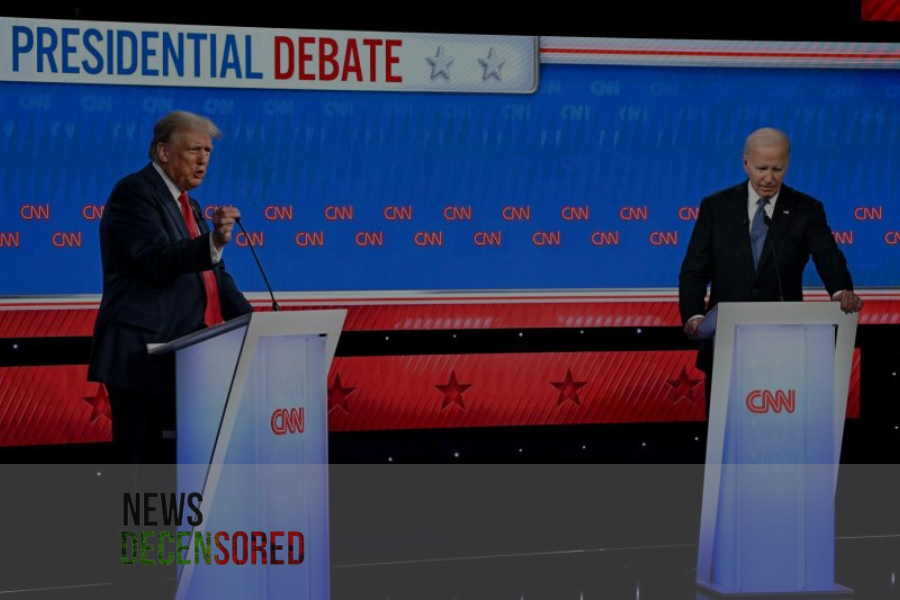The first presidential debate between Donald Trump and Joe Biden caused a major social media frenzy due to their strongly conveyed arguments in defence of pro-Israel credentials. This issue is bound to evoke emotional responses from both supporters and opponents alike, showing broad gaps within the electorate over the U.S.-Israel relationship and Middle Eastern policy.
Both candidates at the debate worked hard to demonstrate their strong support for Israel. Trump spoke about his many accomplishments in that country, such as the relocation of the embassy to Jerusalem and the normalization agreements between Israel and several Arab states that his administration was able to work out.
He claimed that his actions regarding this had gained excellent security for Israel and advanced peace in the region. No administration has been more pro-Israel than mine,” Trump said. “We moved the embassy into Jerusalem, we declared sovereignty of Israel over the Golan Heights, and produced unparalleled peace deals.”
Biden did little but bashed the approach as one-sided and, in the long run, counterproductive for the greater good. Then, he mainly emphasized the two-state solution that would secure security for Israel while securing fundamental rights for the Palestinians. Biden mentioned, “I have always supported Israel and will continue to do so. However, true peace cannot come without a fair and just solution for the condition of the Palestinians. My administration will work towards a sustainable and just peace.”
Social media immediately started flooding in the aftermath of the debate, with #ProIsraelDebate and #USIsraelPolicy becoming the trending topic. Twitter was saturated with impassioned defences by both candidates. Trump supporters touted his unwavering support for Israel with tweets like “Trump has done more for Israel in four years than any president before him! #Trump2024” and “Peace in the Middle East thanks to Trump’s diplomacy. He’s the real friend of Israel.”
On the other side, Biden’s supporters wanted to convey the message of a balanced approach by saying in one tweet, “Biden understands that peace requires fairness. Doesn’t mean ignoring Palestinian rights. #BidenHarris2024,” and “A two-state solution is the only way forward. Biden’s approach is pragmatic and just.”
The two extremities of the criticizing community also started to make their presence felt. For one, progressive activists and a few left-leaning Democrats became disappointed by Biden’s stance, citing how it failed to differ much from Trump’s and match up to mitigate the Palestinian suffering adequately. Tweets like “Biden’s pro-Israel rhetoric sounds just like Trump. Where’s the justice for Palestinians? #Debate2024” were quite common among them.
On the Other Side of the Debate: Those extreme right-wing pundits and hard-core Trump supporters were not going to miss any opportunity to blast Biden hard for even referring to Palestinian rights, done presumably to show weakness. “Biden’s talk of a two-state solution is dangerous. Israel needs unwavering support, not appeasement! #MAGA” reflected this feeling.
The debate resonated equally with viewers from abroad, not least those in the Middle East. Israelis flocked to social media to praise the pro-Israel babies of both candidates but also to caution at the prospect of a possible Biden presidency. Activists and commentators from Palestine felt frustrated and disappointed by what they felt was the Presidential Debate again contributing to marginalization and putting a lid on their voices.
In other words, the first engagement between Trump and Biden counterpointed not just a revived and highly polarizing issue of U.S.-Israel bilateral relations but also put forward an ideological chasm that characterizes the American electorate and beyond. What these candidates can do for Israel and how their Middle Eastern policy will look with the election drawing closer is going to stay in focus and hotly debated, with social media being just a platform for this.















